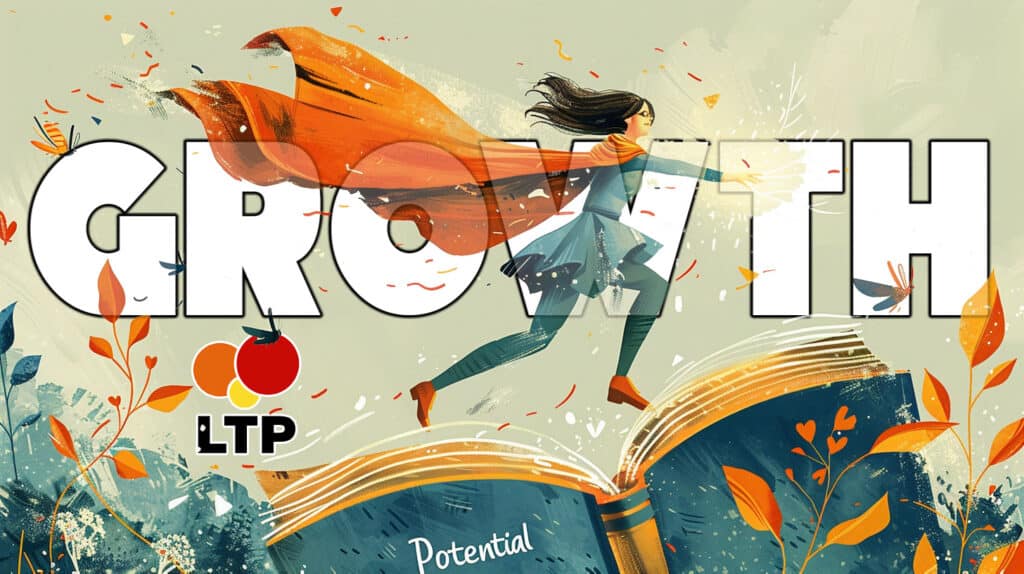


Are you ready to transform your life? Imagine having a clear roadmap to achieve your personal and professional goals effortlessly.
You’re not alone in your quest for growth and success. Many face the challenge of balancing personal aspirations with career ambitions.
I’m here to be your trusted guide. With years of experience in personal development, I understand the journey you’re on and can help navigate it successfully.
In this article, I’ll outline the key benefits of Personal Development Plans (PDP) and provide actionable tips to implement them effectively, including enhancing self-awareness and clarity, boosting confidence and motivation, achieving work-life balance, and navigating career advancement opportunities.
Take the first step towards your transformation. Explore the article to discover how a PDP can unlock your full potential.
By the end, you’ll have a clear understanding of how a well-crafted PDP can propel you towards achieving your goals and living a more fulfilling life.
Here are 10 reasons for the importance of personal development plan:
- Clarity: Provides clear goals and direction for personal growth.
- Direction: Guides actions and decisions toward achieving objectives.
- Motivation: Sustains inspiration and drive during challenges.
- Progress Tracking: Monitors achievements and maintains momentum.
- Skill Development: Enhances abilities for personal and professional success.
- Long-Term Success: Sets the stage for sustained fulfillment.
- Confidence: Builds self-assurance through goal attainment.
- Relationships: Improves communication and empathy.
- Lifelong Learning: Encourages ongoing development and adaptation.
- Self-Awareness: Enhances understanding of strengths, weaknesses, and values.
See also Personal Growth Challenges: 10 Techniques for Self-Reflection and Goal Setting
Personal Development Plans

Personal Development Plans (PDP) are essential tools for individuals seeking to achieve personal and professional goals. By outlining specific objectives and strategies for personal growth, PDPs facilitate continuous improvement and development.
They enable individuals to achieve work-life balance in personal and professional life, helping a growth mindset that encourages the acquisition of new skills and the pursuit of career advancement.
With a focus on both personal and professional goals, PDP serves career development and long-term success.
By aligning personal development goals with career growth objectives, individuals can enhance their skills, expand their opportunities, and achieve greater satisfaction in both their personal and professional lives.
Purpose and Benefits of PDP

A Personal Development Plan (PDP) serves as a structured framework for self-assessment and improvement. It enables individuals to identify areas for growth and set achievable goals aligned with personal and career aspirations.
By helping self-awareness and reflection, PDPs enhance self-esteem and provide clarity on career goals and progression.
The key benefits of PDPs include facilitating career development, promoting self-improvement, and empowering individuals to take ownership of their personal and professional growth journey.
Having a personal development plan is important for several reasons.
Here are 10 important items to include in a personal development plan:
1. Clarity
Clarity is essential for personal development as it provides a clear understanding of one’s goals, aspirations, and areas for improvement.
By addressing weaknesses and identifying necessary skills, individuals can set realistic goals aligned with long-term success in both their personal and professional lives.
A Personal Development Plan (PDP) serves as a great tool for goal setting, helping individuals stay motivated and focused on their objectives. With clarity, individuals are encouraged to step out of their comfort zones, learn new skills, and achieve their fullest potential in all aspects of life.
Whether it’s advancing one’s career or enhancing one’s quality of life, clarity is the cornerstone of personal growth and development.
Here is a list of 10 items for importance of clarity in personal development:
- Sets Clear Goals: Helps define and articulate specific, achievable objectives.
- Guides Decision-Making: Provides a clear framework for making informed choices.
- Boosts Motivation: Enhances drive by creating a clear vision of desired outcomes.
- Increases Focus: Directs attention towards priorities, minimizing distractions.
- Improves Efficiency: Streamlines efforts by eliminating unnecessary actions.
- Enhances Self-Awareness: Promotes understanding of personal strengths and areas for growth.
- Facilitates Progress Tracking: Enables monitoring of progress and adjustment of strategies.
- Builds Confidence: Fosters self-assurance by clearly outlining steps and milestones.
- Reduces Stress: Lowers anxiety by providing a clear path forward.
- Encourages Accountability: Holds you responsible for your actions and progress.
2. Direction
Direction is a crucial aspect of personal development, providing a roadmap for growth and success. It helps individuals develop skills and progress in their careers by setting clear goals aligned with larger objectives.
With direction, individuals can navigate life’s challenges and seize new opportunities for learning and advancement.
By creating focus and motivation, direction enables individuals to channel their efforts effectively, maximizing resources and overcoming weaknesses. Moreover, direction helps a sense of purpose and clarity, guiding individuals toward greater success in both their personal and professional lives.
Understanding the importance of direction empowers individuals to create a fulfilling life filled with meaningful achievements and continuous progress.
3. Motivation

Motivation is a driving force in personal development, providing direction and fueling progress towards achieving life goals. It serves as a source of inspiration by highlighting the benefits of realizing one’s aspirations, whether in career and wealth advancement, accumulation, or personal growth.
Through initiatives like a Personal Development Plan (PDP), individuals can identify long-term goals, create a roadmap for improvement, and lead a more fulfilling life.
Motivation empowers individuals to navigate challenges, develop skills, and take on responsibilities with confidence.
By maintaining focus on long-term objectives and nurturing meaningful relationships, motivation sustains momentum, even in the face of obstacles. Ultimately, motivation plays a pivotal role in realizing one’s potential and shaping a fulfilling life journey.
Here is a list of 8 tips on how to have motivation in personal development:
- Break Down Tasks: Divide larger goals into smaller, manageable steps to avoid feeling overwhelmed.
- Seek Inspiration: Surround yourself with motivational quotes, books, and positive influences.
- Reward Yourself: Celebrate small wins and milestones to stay motivated and acknowledge your progress.
- Stay Positive: Maintain a positive mindset and focus on your strengths and achievements.
- Find a Mentor: Seek guidance and support from someone who inspires you and can provide valuable insights.
- Visualize Success: Imagine the successful completion of your goals to keep yourself focused and motivated.
- Stay Accountable: Share your goals with a friend or join a group to keep yourself accountable.
- Learn Continuously: Keep acquiring new knowledge and skills to stay engaged and motivated in your development journey.
4. Progress Tracking
Progress tracking is an essential component of personal development planning, enabling individuals to monitor their advancement toward personal, and professional goals and wellness.
By tracking progress over time, individuals can assess their achievements and identify areas for improvement, helping self-awareness and motivating further growth.
This process not only enhances skills and abilities but also contributes to career advancement and overall work-life balance. Progress tracking allows individuals to align their actions with larger goals, facilitating career progression and the acquisition of new skills and knowledge.
The benefits of progress tracking extend beyond professional development, empowering individuals to lead fulfilling lives by setting and achieving personal goals, ultimately leading to greater satisfaction and success in both their personal and professional endeavors.
Here is a list of 10 apps for tracking progress:
- Trello: Organize tasks and projects with boards, lists, and cards.
- Todoist: Track and manage tasks with due dates and priority levels.
- Habitica: Turn your goals into a game with rewards for completing tasks.
- Asana: Collaborate on projects, assign tasks, and track deadlines.
- Strides: Set and track goals with customizable templates and progress charts.
- Google Keep: Create and track notes, lists, and reminders.
- Notion: An all-in-one workspace to track tasks, projects, and goals.
- MyFitnessPal: Track fitness and nutritional goals with detailed logs.
- RescueTime: Monitor and analyze time spent on various activities.
- Streaks: Build good habits by tracking daily and weekly goals.
See also Signs of Personal Growth: 13 Markers of Self-Discovery and Empowerment
5. Skill Development
Skills development is essential for personal development as it enhances one’s abilities and knowledge, leading to increased confidence and competence. By acquiring new skills, individuals can adapt to changing environments, solve problems more effectively, and seize new opportunities.
This continuous learning process promotes self-awareness, helping people identify their strengths and areas for improvement. Furthermore, skills development helps resilience and flexibility, enabling individuals to navigate challenges and setbacks with greater ease.
It also supports career advancement, as a well-rounded skill set makes one more competitive in the job market. Ultimately, investing in skills development is a key driver of personal growth and fulfillment.
6. Long-Term Success

Long-term success in personal development is the culmination of a strategic approach to life, driven by continuous self-improvement and guided by a well-structured personal development plan.
It involves cultivating self-awareness, setting clear career goals, and progressing steadily toward them.
By nurturing self-esteem and refining skills through a development plan, individuals can navigate their career paths with confidence and resilience. Moreover, personal development planning equips individuals with the knowledge, resources, and abilities needed to thrive in various aspects of life.
It underscores the importance of investing in oneself, helping meaningful relationships, and leveraging personal strengths to achieve long-term goals.
Ultimately, long-term success in personal development empowers individuals to lead fulfilling lives and make lasting contributions to their communities.
7. Confidence
Confidence plays a pivotal role in personal development, influencing various aspects of one’s life. A robust personal development plan (PDP) helps confidence by providing learning opportunities to create and achieve goals.
It empowers individuals to confront weaknesses and capitalize on strengths, thereby enhancing their ability to excel in both the personal and professional world.
Confidence cultivated through personal development enables individuals to navigate relationships with assurance and assertiveness. Moreover, a strong sense of self-assurance acquired from PDP encourages individuals to face challenges and acquire new skills, facilitating continuous growth throughout life.
Confidence gained through personal development not only enhances job performance but also enriches personal life, equipping individuals with the resilience and determination to thrive in all spheres of life.
Here are 8 tips on how to be more confident in personal development:
- Visualize Success: Picture yourself achieving your goals to boost motivation and reinforce positive outcomes.
- Build on Strengths: Focus on enhancing your existing skills and talents to increase self-assurance.
- Learn from Failures: View setbacks as learning opportunities rather than obstacles, and adjust your approach accordingly.
- Practice Assertiveness: Communicate your ideas and needs confidently while respecting others’ perspectives.
- Network and Connect: Engage with mentors, peers, and role models to gain insights and support for personal growth.
- Seek Professional Development: Attend workshops, courses, or seminars to expand your knowledge and expertise.
- Maintain Balance: Prioritize self-care activities that promote mental, emotional, and physical well-being.
- Challenge Negative Thoughts: Replace self-doubt with positive affirmations and constructive self-talk.
8. Relationships
Relationships play a vital role in personal development, as they encourage a person to grow and develop. Including relationships in a personal development plan can have a significant impact on one’s career and personal life.
Nurturing love and relationships helps individuals develop communication skills, empathy, and collaboration—key components of personal and professional development.
Strong relationships contribute to work-life balance, supporting individuals in achieving their goals both personally and professionally.
Whether it’s building a love checklist or helping connections in the workplace, investing in relationships enhances personal growth and enriches every aspect of life.
Here are 10 tips on how to have good relationships:
- Effective Communication: Practice active listening, express your thoughts clearly, and be open to feedback.
- Build Trust: Be reliable, honest, and maintain confidentiality when necessary.
- Respect Boundaries: Honor personal space, opinions, and emotions of others.
- Show Empathy: Understand and validate others’ feelings and perspectives.
- Resolve Conflicts: Address issues constructively, focusing on finding solutions rather than blame.
- Share Responsibilities: Collaborate and support each other in achieving common goals.
- Create Quality Time: Spend meaningful moments together, enjoying activities and conversations.
- Celebrate Successes: Acknowledge and celebrate achievements, both big and small.
- Forgive and Apologize: Practice forgiveness and apologize sincerely when mistakes are made.
- Support Growth: Encourage personal development and growth in each other.
9. Lifelong Learning

Lifelong learning is integral to personal development as it encourages individuals to continuously acquire new skills and knowledge throughout their lives. By creating a personal development plan, individuals can identify areas of weakness and set goals for improvement.
Practicing lifelong learning not only enhances one’s capabilities but also increases opportunities for career advancement and personal growth.
Whether it’s learning a new language, mastering a technical skill, or gaining expertise in a particular field, lifelong learning empowers individuals to adapt to changes in the job market and achieve their goals, ultimately contributing to their overall success and fulfillment.
10. Self-Awareness
Self-awareness is a fundamental aspect of personal development, enabling a person to understand their strengths and weaknesses.
By creating a personal development plan, individuals can identify areas for growth and take proactive steps to address them.
This self-awareness extends beyond the workplace, as it encourages individuals to prioritize self-care through tools like a self-care planner and a self-care night checklist. Recognizing one’s limitations and needs helps a sense of empowerment and agency, facilitating holistic growth and fulfillment.
Self-awareness serves as a cornerstone for personal development, guiding individuals towards greater self-understanding and success in all aspects of their lives.
See also Personality And Personal Growth: 11 Ways Personality Guides the Journey
Personal Development Plan Importance: A Recap

A Personal Development Plan (PDP) is crucial for individuals striving to achieve their goals and acquire new skills. By outlining specific objectives and action steps, a PDP provides a roadmap for personal growth and development.
It empowers individuals to take ownership of their learning journey, whether they aim to advance in their careers or enhance their personal lives.
Through continuous self-assessment and improvement, guided by the PDP, individuals can overcome obstacles and reach their full potential. Ultimately, the importance of a PDP lies in its ability to inspire progress, help resilience, and propel individuals towards greater success and fulfillment in all areas of life.


